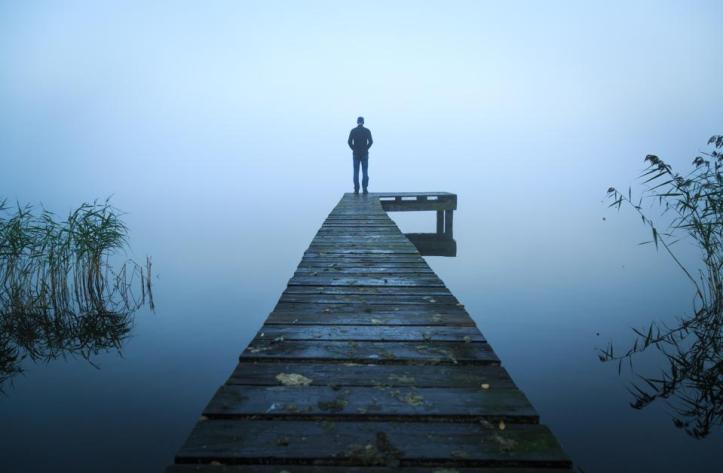December 29, 2020
By: Hannah Edwar

“His heart stopped, and we weren’t able to resuscitate him.” I sat up on the bed clutching my phone as I asked the doctor to repeat what he just said. Partly because it was the middle of the night and I wanted to make sure that I heard him correctly and partly because because I wanted to buy time to think of something to say; it felt like just saying thank you for letting me know and goodbye wasn’t enough. Even though we were expecting the call for a few days, that actual moment when it happens…nothing can prepare you for that. At that moment your entire world collapses, everything you thought you knew about life and every principle you have ever relied on gets shaken and it is about to get even worse.
Losing a loved one is one of the biggest reality checks life will throw your way. There is no pamphlet to recovery and there is no time limit. As a society we do not talk about death enough; its considered morbid and unimaginable so it’s very hard to prepare for and expect the tsunami of emotions you will get slapped with. It is very hard to imagine that you will make your way through those emotions and have hope that you will come out on the other side. In fact, we crowd the grieving process with so many wrong myths and needless traditions that leave very little room for people to find their own way through it. If there is one thing we know about grieving it’s that it is a very personal experience; how you grieve is determined by your own personality the circumstances of the death and your relationship with the person you lost which is usually more complicated than you initially thought. Nothing about it can be expected and so nothing about it is a straight line to recovery. It’s easy for example to expect the sadness that grief carries with it, but no one will tell you how incredibly lonely you will feel no matter how many people you are around.

No one will tell you that it is not the funeral or the burial but the months after losing a loved one that will be some of the worst of your life. No one will tell you that even the strongest of us will get sudden crying fits that are triggered from practically nothing. No one will tell you that activities that once were routine will feel like you’re lifting weights and, on some days, the mere idea of getting out of bed will drain every ounce of energy you have. No one will tell you that there will come moments when you will be so overwhelmed with the emotional pain that you will literally want to die.
Instead they will tell you to get back to work, some will highlight the importance of letting it out and crying, others will urge you to take time off work and travel and then say you should push yourself to go back to normal and that time will do the healing for you. Though well intentioned the problem with these pieces of advice is that they do not work for everyone. And because we are all so unprepared to deal with loss, we look at these statements, follow them and when they fail, we think that we are the problem. And you end up with someone who adds failure to move on and return to normal life on the already long list of overwhelming emotions they are juggling. The sense of despair that there is no way out will grow and it will feel like you’re being buried alive.

At that point when going back to normal does not work that is usually when the depression kicks in. And depression brings guilt and anger with it. It will feel like you are living on another frequency than everyone else. A frequency where you no longer have access to positive emotions and every negative emotion you have is heightened. Your anxiety is on an all time high, the slightest act can make you burst into tears or bite someone’s head off. Regardless of the circumstances of their death you will find a reason to feel guilty. You will obsess over the last conversation you had, your last fight you will bury your brain in so many “what ifs” it will feel like you are drowning. You will see yourself turning into someone you do not even recognize, and you will get so good at faking happiness that you will even fool yourself into believing it sometimes. Then when the wave of sadness hits, you will think you are failing and that nothing is working. The reality is however you will not be happy or okay for a while and going back to normal is no longer an option. Things will never be the same again because a critical part of the equation for that to happen is quite simply no longer there. The truth is whatever it is you are feeling is okay and however you are acting is also okay and going back to normal is not your objective. Feeling okay is. So, Ignore the social cues and work towards your own path of recovery.
I could end this article with a series of positive quotes like “the pain passes but the beauty remains” and “time heals all wounds”but more realistically let me say; the process is long, hard and you will fail more times than you would like. Accepting that is the kindest thing you will do for yourself and reaching out to a friend, a family member, or a therapist is the second kindest thing you can do for yourself. You are not a burden and chances are there are people around you who want to help but do not know how. Remember that the same society that has not prepared you to deal with losing a loved one, also has not prepared them to help you grieve. Do not overwhelm yourself with goals and expectations just take it one moment at a time and you will find your own way through it.
***If you liked this article, don’t forget to subscribe to our newsletter and receive our articles by email.
